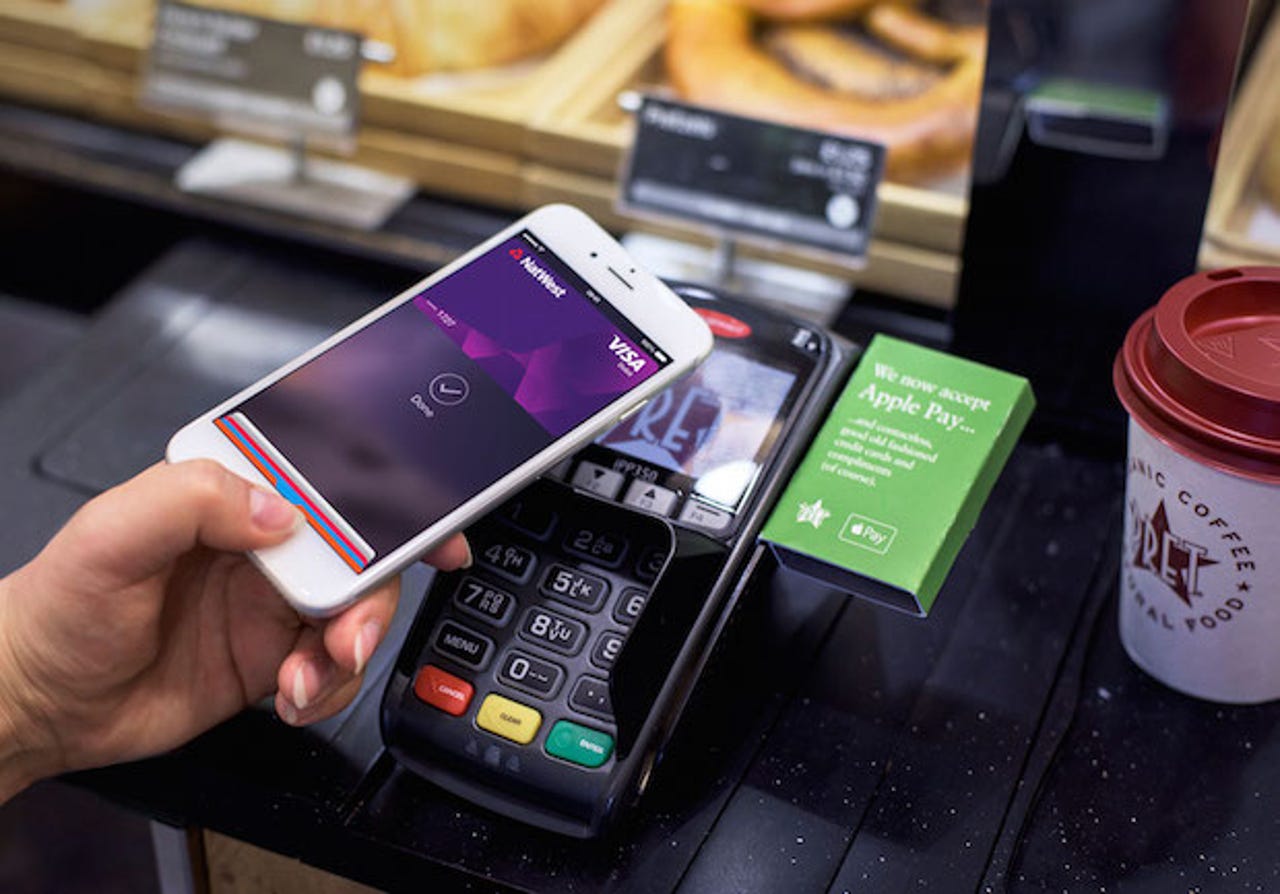Apple Pay arrives: Not with a bang but with a quiet tap


Apple's pay-by-iPhone system arrived in the UK today, but it's likely to face a long campaign to persuade consumers to give up their credit cards and cash.
Apple Pay allows owners of iPhone 6, iPhone 6 Plus, and Apple Watches to make payments in stores that already accept contactless payments. Apple Pay also allows iPhone 6, iPhone 6 Plus, iPad Air 2, and iPad mini 3 owners to make payments inside apps.
Security is one of Apple Pay's big selling points to customers: when a card is added to Apple Pay, instead of the number being stored on the device, a different 'device account number' is assigned and stored, in encrypted form, on the handset. That, along with a one-time security code, are used to complete the transaction, with a fingerprint taken by Touch ID used to confirm it.
While it may have security on its side, the launch of Apple Pay in the UK is a bit muted for a few reasons. Firstly, not all the banks are onboard. While mbna, Nationwide, NatWest, Royal Bank of Scotland, Santander, and Ulster Bank are offering the service, others such as First direct, Halifax, HSBC, Lloyds, M&S Bank, and TSB are listed as 'coming soon.' Barclays, one of the UK's largest banks, has said it will be offering Apple Pay 'in the future'.
Another issue is that at launch Apple Pay transactions will mostly be limited to £20, thanks to the software used in most retailers' contactless terminals. Visa said that by the end of the year, it expects four out of five contactless terminals will accept payments of any value made with Apple Pay, but for now, big spenders will have to confine themselves to small purchases at retailers including Apple itself, Boots, Marks & Spencer, Pret a Manger, and Burger King.
Contactless payments are also still a niche interest: a survey from MasterCard found that only a quarter of British consumers said that they intend to make a contactless payment with their mobile in the next year. (However, research by Visa Europe found that some demand for mobile payments among iOS users, 60 percent of whom want to pay for goods and services using their phone.)
It's early days for mobile payments services. Google's own similar attempt at cracking the market - Android Pay - will be arriving soon. Indeed, various versions of contactless payment technology have been tried over the last half a decade with limited takeup. Now the technical aspects have been conquered, it's down to suppliers to give retailers good reasons to support it: does it raise the average spend or improve customer loyalty or just get them through the checkout quicker?
Analyst group Forrester said that Apple Pay needs retailers more than retailers need Apple Pay, and it's possible to argue that right now, Apple Pay also needs shoppers more than they need it. "Consumers want a better shopping experience, not better payment systems," the analysts said.
Forrester said that Apple needs to build trust with UK consumers: according to its data, iOS users are more likely to trust banks, credit card networks, Amazon, and PayPal than Apple for their mobile wallet.
Longer term, these contactless payment services are a new beachhead for tech companies. They could easily mature into full banking services (for example, sending money between devices) which is why some of the banks remain cautious about offering them.
The ability to make payments is at the core of these systems but it's only the start. Apple has a more complex vision in mind for the service: for example, Apple will soon add support for rewards programmes, another step in building a more substantial mobile wallet offering.
As more functionality is added to these payment systems, they're likely to become more attractive, but for now the biggest challenge is to explain why paying by smartphone is better than using a credit card or cash - neither of which ever run out of battery.
More on Apple Pay and mobile payments
- Apple Pay launches in the UK
- Why 2015 may not be the year of Apple Pay after all
- Apple Pay comes to the UK, but will your bank offer it?
- Barclaycard's PayTag 'upgrades' your phone for contactless payments
- Why mobile payments is like Wacky Races -- and why Apple is steering clear
- The next digital battlefield: Your wallet